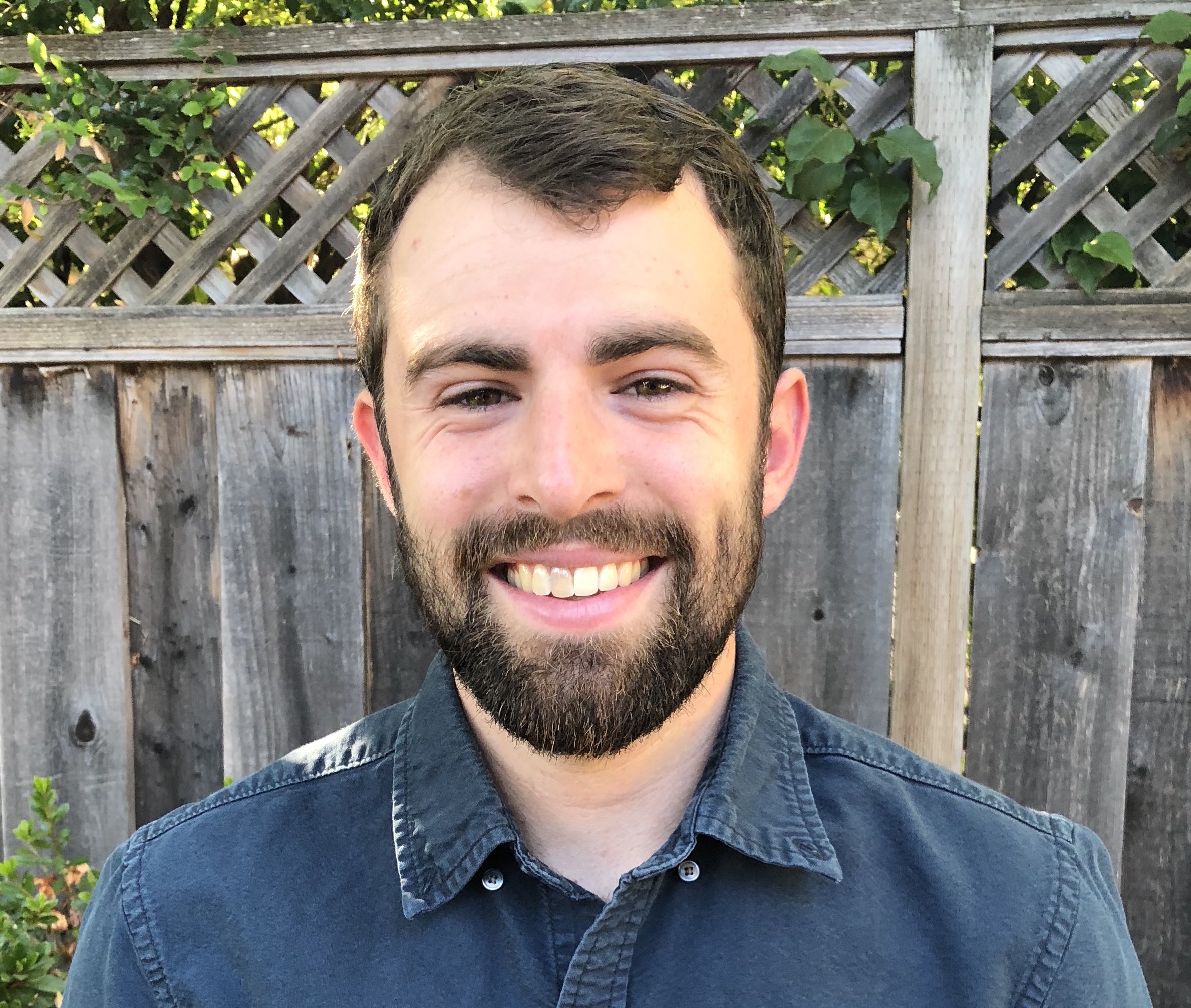About Us
The CALM Program
We are dedicated to conducting research on mental health problems.
One line of our work focuses on understanding the factors that promote better outcomes in bipolar disorder, and how to use those to develop new interventions. Our latest work on that front is focused on healthy lifestyles, and involves healthy eating and improving sleep.
Over the past 20 years, research by Dr. Johnson and her team members have shown that mania is often triggered by processes related to reward and goals. In a series of papers, we showed that bipolar disorder was related to specific problems with controlling impulses when people were feeling highly emotional—a problem that has been called emotion-related impulsivity. From there, we began to study emotion-related impulsivity more broadly across mental health domains. We have shown that this type of impulsivity is related to many mental health syndromes and to many of the behavioral problems, such as aggression, suicidality, and self-harm, that occur within those syndromes. You can read more about emotion-related impulsivity here.
The team is led by Sheri L. Johnson, PhD, Professor of Psychology at the University of California at Berkeley, with support from the National Institute of Mental Health and Wellcome Trust. Our team on this project includes Lance Kriegsfeld at UC Berkeley, Greg Murray at Swinburne University, Satchidananda Panda and Emily Manoogian at Salk Institute, Liam Mason at UCL, and a panel of lived experience experts.
One line of our work focuses on understanding the factors that promote better outcomes in bipolar disorder, and how to use those to develop new interventions. Our latest work on that front is focused on healthy lifestyles, and involves healthy eating and improving sleep.
Over the past 20 years, research by Dr. Johnson and her team members have shown that mania is often triggered by processes related to reward and goals. In a series of papers, we showed that bipolar disorder was related to specific problems with controlling impulses when people were feeling highly emotional—a problem that has been called emotion-related impulsivity. From there, we began to study emotion-related impulsivity more broadly across mental health domains. We have shown that this type of impulsivity is related to many mental health syndromes and to many of the behavioral problems, such as aggression, suicidality, and self-harm, that occur within those syndromes. You can read more about emotion-related impulsivity here.
The team is led by Sheri L. Johnson, PhD, Professor of Psychology at the University of California at Berkeley, with support from the National Institute of Mental Health and Wellcome Trust. Our team on this project includes Lance Kriegsfeld at UC Berkeley, Greg Murray at Swinburne University, Satchidananda Panda and Emily Manoogian at Salk Institute, Liam Mason at UCL, and a panel of lived experience experts.
Play Video
Dr. Johnson speaks on emotion-related impulsivity.
Research Team

Sheri L. Johnson
Dr. Johnson is a professor of psychology at the University of California Berkeley, where she directs the Calm Program. Her work has been funded by the National Alliance for Research on Schizophrenia and Depression, the National Institute of Mental Health, the National Science Foundation, and the National Cancer Institute. She has published over 200 manuscripts, including publications in leading journals such as the Journal of Abnormal Psychology and the American Journal of Psychiatry. She is co-editor or co-author of five books, including Emotion and Psychopathology and a best-selling textbook on Abnormal Psychology (Wiley Press). She is a fellow for Association for Behavioral and Cognitive Therapies (ABCT), the Association for Behavioral Medicine Research and the American Psychological Society.
Most weekends, you can find Dr. Johnson hiking and cycling.
Kenneth J.D. Allen
Dr. Allen is a Project Scientist in Professor Johnson’s laboratory, which they joined as a Visiting Scholar in 2021. In 2018, they received their Ph.D. in psychology under the mentorship of Jill Hooley, D.Phil., from Harvard University’s clinical science program. They subsequently completed a predoctoral residency and postdoctoral fellowship at Brown Medical School before becoming a visiting faculty member at their alma mater, Oberlin College. Dr. Allen’s research investigates neurocognitive mechanisms — particularly “hot” executive functions — in transdiagnostic forms of psychopathology. Currently, they are collaborating with Dr. Johnson and international colleagues to develop and evaluate cognitive training interventions that directly target these processes to enhance emotion regulation. In addition to providing clinical training and supervision to CALM Program team members, Dr. Allen teaches the course Clinical Psychology (PSYCH 130) at UC Berkeley.


Manon Ironside
Manon is a 5th year graduate student in the Clinical Science program. Her interests include understanding how people with and without mood disorders learn from experience and make goal-directed choices. She is particularly interested in temporal discounting (why do people prefer smaller immediate rewards to later larger ones?) and the explore-exploit dilemma during learning (how do people balance seeking new information with taking advantage of known rewarding options?). In her current research, she takes a computational modeling approach to better understanding the learning and decision making process in bipolar disorder.
Devon Sandel
Devon Sandel-Fernandez is a PhD candidate in the Clinical Science program, currently completing her internship year in Seattle at the VA Puget Sound Health Care System. She conducts research on impulsivity and emotion regulation as they unfold across time, with a focus on risk behaviors including self-harm and suicidal behaviors. Devon often uses repeated measures data to build person-specific models of behavior. Her current work focuses on the use of technologies to improve mental health treatment.


Matthew Elliot
Matt is a 3rd year graduate student in the clinical science program. He received his BS in Psychology from UC Davis, and after graduating, he worked for two years on a study of cognitive development at the UC Davis MIND Institute. Matt is interested in researching how interactions between cognition and emotion affect mental health. He hopes to incorporate human neuroimaging methods into his work to better understand cognition-emotion interfaces at the neural systems level.
Nandini Rajgopal
Nandini is our coordinator of studies on emotion and cognition as well as healthy lifestyles in bipolar disorder. She graduated from UC Berkeley in 2022, majoring in Psychology and Molecular and Cell Biology with a concentration in Neurobiology. Nandini aims to pursue a future in medicine, specifically Psychiatry, or pursue a PhD in Clinical Psychology. She is particularly interested in serious mental illnesses such as mania and psychosis, as well as the intersection between neurobiology and socio-environmental risk factors. In her free time, Nandini loves to sing, dance, and read.


Jake Gibson
Jake serves as a coordinator to our healthy lifestyles in bipolar disorder study. He began working as a clinical trial coordinator at UCSF after graduating from San Francisco State in 2020. Jake’s research background includes projects on emotional reactivity and interventions for schizophrenia and bipolar populations. His research interests center on accessible mental health interventions and community-participatory methodologies. Jake plans to pursue a PhD in Clinical Psychology and a career in research and teaching.
Lab Collaborators
Abby Adler Mandel, PhD, Catholic University of America
Amelia Dev, BA (staff alum)
Amy Sanchez, PhD (former graduate student)
Andrew Peckham, PhD, McLean Hospital
Ann Kring, PhD, UC Berkeley
Claudia Haase, PhD, Northwestern University
Daniel Fulford, PhD, Boston University
David Jobes, PhD, Catholic University of America
Deanna Barch, PhD, Washington University in St. Louis
Eline Berle, cand.psychol, University of Bergen
Ephrem Fernandez, PhD, UT San Antonio
Erin Michalak, PhD, University of British Columbia
Evan Kleiman, PhD, Rutgers
Greg Murray, PhD, Swinburne
Iris Mauss, PhD, UC Berkeley
June Gruber, PhD, University
of Colorado, Boulder
Kiara Timpano, PhD, University of Miami
Kiana Modavi (statistical consultant)
Lesley Berk, PhD, Deakin University
Mackenzie Zisser, BA (staff alum)
Michael Berk, MD, Deakin University
Michael Freeman, MD
Morgan Robison, BS (staff alum)
Patricia Porter (UCB graduate student)
Peter Taylor, PhD, University of Manchester
Sarah Victor, PhD, Texas Tech
Sharon Glantz, PhD, University of Buenos Aires
Thomas Joiner, PhD, Florida State University
Ursula Beerman, PhD, University of Geneva
Current Research Assistants
Abigail Kemalyan
Sooyeon Kim
Kim Pape
Brahamdeep Kaur
Paulina Ortega
Marlee Neugass
Jackie Carrillo
Christine Lin
Peridot Park
Jenny Gao
Selected Publications
Gruber, J., Mendle, J., Lindquist, K. A., Schmader, T., Clark, L. A., Bliss-Moreau, E., Akinola, M., Atlas, L., Barch, D. M., Barrett, L. F., Borelli, J. L., Brannon, T. N., Bunge, S. A., Campos, B., Cantlon, J., Carter, R., Carter-Sowell, A. R., Chen, S., Craske, M. G., … Williams, L. A. (2021). The Future of Women in Psychological Science. Perspectives on Psychological Science, 16(3), 483–516.
Callahan, J. L., Bell, D. J., Davila, J., Johnson, S. L., Strauman, T. J., & Yee, C. M. (2021). Inviting ASPPB to address systemic bias and racism: Reply to Turner et al. (2021). The American Psychologist, 76(1), 167–168.
Swerdlow, B. A., Johnson, S. L., Timpano, K. R., Porter, P. A., & Dev, A. (2021). Longitudinal associations between internalizing symptoms, social behavior, and social perceptions in the initial months of the COVID-19 pandemic: Findings from a transdiagnostic community sample. Journal of Affective Disorders, 294, 805–812.
Callahan, J. L., Bell, D. J., Davila, J., Johnson, S. L., Strauman, T. J., & Yee, C. M. (2020). The enhanced examination for professional practice in psychology: A viable approach? American Psychologist, 75(1), 52–65.
Relevant to Impulsivity
Carver, C. S., Johnson, S. L., & Joormann, J. (2008). Serotonergic Function, Two-Mode Models of Self-Regulation, and Vulnerability to Depression: What Depression Has In Common with Impulsive Aggression. Psychological Bulletin, 134(6), 912-943.
Carver, C. S., Johnson, S. L., Joorman, J., Kim, Y., & Nam, J. (2011). Serotonin transporter polymorphism interacts with childhood adversity to predict aspects of impulsivity. Psychological Science, 22(5), 589-595.
Auerbach, R. P., Stewart, J. G., & Johnson, S. L. (2017). Impulsivity and suicidality in adolescent inpatients. Journal of Abnormal Child Psychology, 45, 91-103.
Johnson, S.L., Zisser, M., Sandel, D., Swerdlow, B., Carver, C.S., Sanchez, A., & Fernandez, E. (2020). Development of a brief online intervention to address aggression in the context of emotion-related impulsivity: Evidence from a wait-list controlled trial. Behaviour Research and Therapy, 103708.
Elliott, M., Hsu, M., Uddin, L., Timpano, K., & Johnson, S. (2021). Locus Coeruleus—Anterior Insula Functional Connectivity Predicts Emotion-Related Impulsivity as a Function of Reward Magnitude. Biological Psychiatry, 89(9), S264.
Johnson, S. L., Swerdlow, B., Tharp, J. A., Chen, S., Tackett, J., & Zeitzer, J. (2021). Social dominance and multiple dimensions of psychopathology: An experimental test of reactivity to leadership and subordinate roles. PLOS ONE, 16(4), e0250099.
Relevant to Bipolar Disorder
Johnson, S. L., Cuellar, A., Ruggero, C., Perlman, C., Goodnick, P., White, R., & Miller, I. (2008). Life events as predictors of mania and depression in bipolar I disorder. Journal of Abnormal Psychology, 117, 268-277.
Johnson, S.L., Edge, M. D., Holmes, M. K., & Carver, C. S. (2012). The Behavioral Activation System and mania. Annual Review of Clinical Psychology, 8, 243-267
Samtani, S., Moulds, M. L., Johnson, S. L., Ehring, T., Hyett, M. P., Anderson, R., & McEvoy, P. M. (2021). Higher order repetitive negative thinking is more robustly related to depression, anxiety, and mania than measures of rumination or worry. Cognitive Therapy and Research.
Bowe, S., Foley, F., Fletcher, K., Thomas, N., Michalak, E., Berk, L., Berk, M., Cotton, S., Engel, L., Johnson, S. L., Jones, S., Kyrios, M., Lapsley, S., Mihalopoulos, C., Perich, T., & Murray, G. (2021). Is Mindfulness a more effective intervention than Psychoeducation for reducing Bipolar Disorder-related symptoms of depression? International Journal of Epidemiology 50(Supplement_1).
Smucny, J., Tully, L. M., Howell, A. M., Lesh, T. A., Johnson, S. L., OʼReilly, R. C., Minzenberg, M. J., Ursu S., Yoon, J. H., Niendam, T. A., Ragland, J. D., & Carter, C. S. (2021). Schizophrenia and bipolar disorder are associated with opposite brain reward anticipation-associated response. Neuropsychopharmacology, 1-9.
Tharp, J. A., Johnson, S. L., & Dev, A. (2021). Transdiagnostic approach to the dominance behavioral system. Personality and Individual Differences, 176, 110778.
